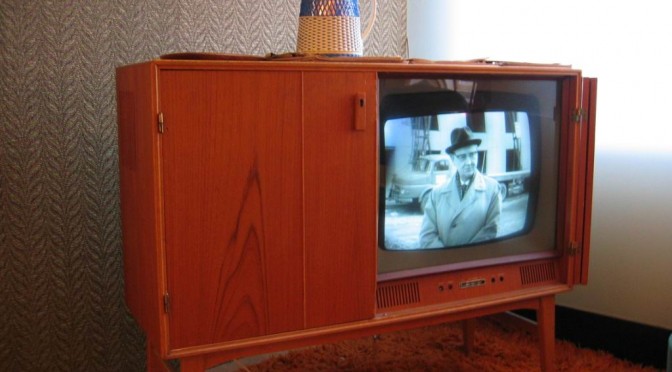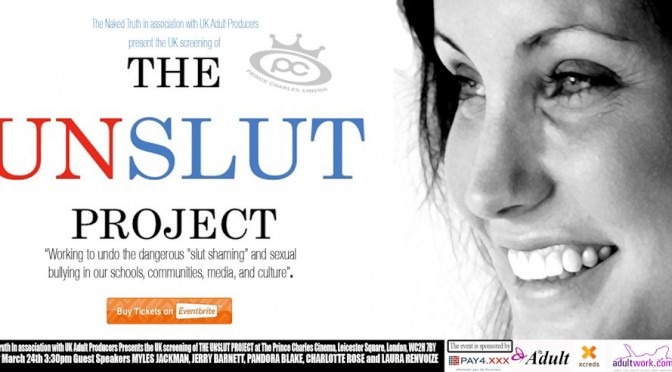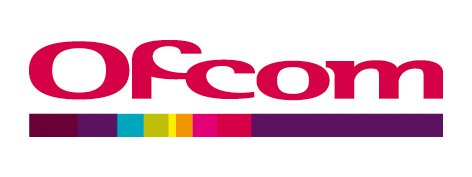Occasional Sex & Censorship blogger, psychologist David Ley, writes in Psychology Today on pornography and science.
Disagreeing with one’s hero is hard but important.
Source: We Must Rely on Good Science in Porn Debate | Psychology Today
Occasional Sex & Censorship blogger, psychologist David Ley, writes in Psychology Today on pornography and science.
Disagreeing with one’s hero is hard but important.
Source: We Must Rely on Good Science in Porn Debate | Psychology Today
Here’s an excellent article by Samantha Rea at VICE on sex workers’ experience of medical care.
If you thought getting healthcare for your desk job was bad, try being a woman in the sex industry. We spoke to escorts, porn actors, and former sex workers who ran into devastating prejudice when getting trying to get something as simple as a medical che
Source: ‘I Was Left Like a Freak in the Corner’: Visiting the Doctor as a Sex Worker | Broadly
A positive statement from Jeremy Corbyn, though his party is very divided on this issue.
Views on sex trade believed to be Labour leader’s personal opinions rather than party policy
Guardian: Jeremy Corbyn: ‘I favour decriminalising the sex industry’
The new Kiddle Search Engine is ‘protecting’ teenagers from learning about sex, sexuality and the human body.
Readers of this blog will be aware that attempts at anti-sex censorship are usually dressed up as ‘child protection’. You might remember, for example, the ‘porn filters‘ that were rolled out by ISPs to protect the little dears from all that horrible pornography; yet in practise blocked everything from sex education to drug information and self-harm support: things that are vital for teenagers to access.
Again, the current government consultation on ‘protecting children online’ is actually aimed at preventing everyone – including adults – from accessing porn that doesn’t comply with UK censorship laws.
In short: when you hear ‘online child protection’, you can expect the exact opposite: defining teens as ‘children’ and then blocking access to vital information and resources is NOT protection: it’s abuse.
So when the new ‘child protection’ search engine from Kiddle turned up, I was suspicious. And, it turns out, rightly so. As Jane Fae writes in Gay Star News (link below), the search engine believes that any terms related to homosexuality are unacceptable. This is not accidental. Searching for ‘LGBT’, for example, returns:
“You have entered an LGBT related search query. Please realize that while Kiddle has nothing against the LGBT community, it’s hard to guarantee the safety of all the search results for such queries. We recommend that you talk to your parent or guardian about such topics”
But the restrictions aren’t confined to gay or trans issues. Searching for ‘breast cancer’ returns:
“Oops, looks like your query contained some bad words. Please try again!”
We live in a country so determined to stop teens seeing nipples that they can’t learn about breast cancer. This isn’t child protection: if a young person is old enough to search for LGBT information, they’re old enough to read the results. To tell a young person exploring their sexuality to “talk to your parent or guardian” is beyond insensitive.
Read Jane Fae’s article here: The new ‘Kiddle’ search engine for children is homophobia at its most creepy and dangerous – Gay Star News

 A couple of years ago, as I was launching this campaign, I was contacted by Vanessa Pellegrin, who was working on a documentary called The Trouble With the F Word: a film examining why feminism has become so unpopular. She has now launched a Kickstarter campaign to help complete the film.
A couple of years ago, as I was launching this campaign, I was contacted by Vanessa Pellegrin, who was working on a documentary called The Trouble With the F Word: a film examining why feminism has become so unpopular. She has now launched a Kickstarter campaign to help complete the film.
It’s an interesting question, and one that also partly drove me to write my own book, Porn Panic!
The film will take a balanced look at feminism and anti-feminism (whatever those things may be – sometimes, feminism itself appears to be so broad and self-contradictory that it could be labelled anti-feminism!)
In the short video below, Vanessa gives five reasons to help fund her project. Have a look, and check out her Kickstarter page if you’d like to be involved.

XBIZ, the LA-based organiser of adult industry trade shows and networking events, has announced it will no longer run its European show in London: the 2016 XBIZ Europe event will take place in Berlin instead.
The show has taken place in London for the past five years, bringing together adult industry participants from around the world to talk business, regulation and politics. London seemed like a perfect choice, explains XBIZ CEO Alec Helmy:
“Back in 2011, we chose London for a number of reasons, from its prime geographic location for international travel to its reputation as a world-class city full of great attractions, not to mention UK is one of our top countries here on XBIZ.net in terms of member demographics. For these and other good reasons, we felt London was the right destination at the time.”
But the increasingly moralistic, censorious nature of the UK has forced XBIZ to reconsider. As this blog has often pointed out, the UK stands almost alone in Europe in its determination to stamp out sexual expression. The UK’s legitimate adult industry is virtually extinct, as operators have closed their doors or moved overseas. This has resulted in job losses as well as tax losses for the exchequer.
Now, Helmy says, London is no longer an ideal place to hold the event, for a variety of reasons.
“… we didn’t foresee just how unfriendly UK would become toward adult. From ATVOD (previous content police) fining adult webmasters for “non-compliance” and scaring many out of business to radical feminists picketing our venues and local media’s negative tone toward adult, the climate became more and more difficult as each year passed. And now with OFCOM (equivalent of FTC) taking full charge of content regulation, the general consensus is that things are going to get even bleaker.
As much as we’ve felt a sense of duty to empower the UK industry by returning each year, it’s become too unwise for us to continue doing so.
So, we’re packing up and relocating the conference to another one of Europe’s top destinations for both business and pleasure, Berlin.”
While XBIZ’s decision is sad for those of us fighting for sexual liberty in the UK, we can hardly blame them for choosing Berlin over London. British culture has become increasingly hostile to sexual freedom, and to free expression in general. Both the Conservative and Labour parties are unrelentingly hostile to sexual expression, so even a change of government would be unlikely to alter our censorious course; and the chance of a Brexit means we may revert even further back towards our old “No Sex Please, We’re British” island status.

The government plans to close the “TV-Like” loophole which a handful of porn services have used to stay in business.
For years, the British censorship state has become infuriated with the way digital communications have entirely sidelined their tight controls over film, TV and video content. The TV regulator Ofcom and the BBFC, which censors DVD, had no control over content on the Internet, whether or not it was published in the UK.
In order to regain some control, the regulators seized on the Audiovisual Media Services Directive, a framework from the EU designed to extend broadcast TV regulation to online streaming services. The directive was written to apply only to “TV-Like On Demand Programme Services”, and was expected to apply to the BBC’s iPlayer and similar services.
However, the British censors saw their opportunity, and set up ATVOD in 2010 in order to implement the directive. While most EU countries followed the spirit of the directive, and set up minimal regulatory regimes, ATVOD instead drafted its own onerous rules and demanded large annual payments (£2,900 in the first year) from services (mainstream and adult) it considered to be “TV-like”.
Since ATVOD’s first goal was to raise funds, it cast its net wide, and declared a wide range of online newspaper and magazine services to be TV-like. The Sun newspaper swiftly appealed, and Ofcom (ATVOD’s effective parent) found in its favour. As a result, ATVOD dropped attempts to bring the Sun, as well as The Sunday Times Video Library, Telegraph TV, The Independent Video, FT Video, Guardian Video, Guardian YouTube, News of the World TV and Elle TV, under its control.
Subsequently, ATVOD tried to declare that some BBC YouTube channels – Top Gear and BBC Food – were TV-like services, and again lost on appeal.
Later, adult services also used the same appeal, sometimes successfully. The first successful appeal was by Mistress Tytania (who I interviewed for a podcast). She therefore found herself in the peculiar position of running the only hardcore adult service legally allowed to trade in the UK while ignoring ATVOD’s rules.
In our interview, Mistress Tytania said “I think ATVOD are now trying to correct all the holes in their argument. I’m free for now, but I don’t know for how long.” Well, now we know how long. Tucked away in the recently issued consultation on new porn laws, was an important line:
“… our proposals would also apply to pornography that the BBFC would rate as category 18 sex works and would apply to all online content, not just VOD services.”
At a stroke, this closes the only possible route of appeal for adult services that wish to remain in the UK. It also extends the age verification requirement to still images as well as video, and to soft imagery as well as sexually explicit. It will probably also extend to cartoons, drawings and other artwork, and maybe even to text.
It will cover Twitter and Google, and many other non-porn services, as these feature nude imagery. In other words – as I have often pointed out – this is a blueprint for censoring the Internet as a whole, not (as billed) protecting children from seeing porn.

Screening at the Prince Charles cinema in central London on 24th March, The Unslut Project takes a deep look at slut-shaming: stigmatising women for being proudly sexual, or merely for enjoying casual sex.
The screening will be followed by a panel discussion, on which I will feature, alongside other leading sexual freedom campaigners.
Proceeds will go to sexual freedom causes: please attend if you can, and let your friends know about the event.
For further details and tickets, visit ItsAdult.com.

The recent transfer of Internet censorship powers from ATVOD to Ofcom has been trumpeted as a victory for free expression. It is anything but.
In 2009, the then opposition leader, David Cameron (who, we might remember, used to show vaguely liberal leanings), made a radical pledge: to break up the mighty super-regulator, Ofcom. As reported by the Guardian, he said:
“With a Conservative government, Ofcom as we know it will cease to exist. Its remit will be restricted to its narrow technical and enforcement roles. It will no longer play a role in making policy. And the policy-making functions it has today will be transferred back fully to the Department for Culture, Media and Sport.”
This was a very important pledge. Ofcom, a large organisation with an annual budget running into the hundreds of millions of pounds, also writes and enforces policy, particularly in the field of television censorship: something that, as Cameron had noticed, is surely the role of government rather than an unelected regulator.
Of course, once the coalition was elected in 2010, this pledge was never heard of again. Ofcom remained intact, and is alive and well to this day. Furthermore, as of 1st January this year, video-on-demand censorship powers were transferred from ATVOD to Ofcom.
When the demise of ATVOD was reported last year, there was much jubilation, especially among small UK porn producers. As probably the original anti-ATVOD campaigner (having been in some way involved with the new VoD regulations since 2007), I too did a little dance on ATVOD’s grave. ATVOD’s CEO, Pete Johnson, had proven to be an obsessive anti-porn activist, and he turned his organisation’s ‘regulatory activity’ into little more than a witch-hunt of British porn publishers.
But some of those involved trumpeted this move as some kind of victory for free expression. Anyone with experience of Ofcom would never make such a mistake. It is a grave threat to online free speech.
Ofcom is a typical New Labour creation: iron-fisted authoritarianism wrapped in a velvet glove of diversity and other fluffy things. Formed by merging multiple regulators into one monolith, it was granted powers of control over our daily lives. Its rules for television are moralistic and wide-ranging, and almost never challenged by our elected representatives. The 2009 version of David Cameron deserves at least a little kudos for even mentioning the problem.
Ofcom’s attitudes to pornography on TV make ATVOD’s prudish rules for VoD seem positively libertine. While online rules allow hardcore porn – at least up to the BBFC’s R18 standard – Ofcom totally banned all explicit sex acts from TV. This applies even to PIN-protected adult channels broadcasting at 3am. In the name of child protection, British adults are banned from watching porn on TV: almost all other EU countries and the ‘prudish’ US allow hardcore porn to be broadcast – many in the middle of the day.
But even the BBFC’s 18 standard for soft porn is too much for the moralists at Ofcom, who have created their own, even softer standard of decency, which is prudish to the point of comedy.
Empowered by the Broadcast Act (2003), Ofcom doesn’t just write law: it is judge, jury and executioner. Tiny breaches of its code can result in fines of tens of thousands of pounds – in fact, it can impose fines of up to £250,000. And it also has the power to order TV channels to close, and even to ban companies from operating TV channels.
Playboy TV, for example, fell foul of Ofcom rules numerous times. Having been fined £25,000 in 2004, it was fined £22,500 in 2008 for broadcasting content that ‘included sequences depicting masturbation, oral sex (both between women and between men and women), clear labial detail, sexual intercourse, and full nudity. Some also included strong language, such as “fuck” and its derivatives and “cunt”, in an overtly sexual context.’
Yes folks, a massive, unelected, publicly-funded organisation issues huge fines to porn businesses that allow adults to see ‘clear labial detail’, on an encrypted TV channel in the middle of the night.
With the convergence of TV and the Internet, Ofcom was always going to make a grab for Internet censorship powers. The closure of ATVOD may have made us all smile, but it fits in with Ofcom’s strategic interests. In fact, ATVOD only existed for temporary convenience, the result of a pretence at co-regulation between government and industry (ATVOD was once a genuine trade association, but was hijacked and turned into a censorship body in 2010).
The current consultation on further Internet censorship powers for Ofcom is ominous indeed. It is clearly an exercise in box-checking before the government inevitably decides that the UK, alone in the democratic world, needs more Internet censorship to protect our under-18s (and purely by accident, protect adults too) from sexual expression. There is little chance that the old, liberal Cameron will leap to our rescue. Internet censorship is on the short-term agenda: the transfer of power from ATVOD to Ofcom was not a victory for free speech, but a signal that state censorship of the Internet is getting serious.
This week, attempts to legally enforce condoms in porn in California were struck down: a great victory for the performers that campaigned against this intrusion into their lives.
In this excellent letter, pornstar Lorelei Lee responds to biased, closed-minded reporting on the issue from the New York Times.
My name is Lorelei Lee and I’m an adult film performer who has worked in the industry for fifteen years. I read your art…
Source: Dear New York Times, — Medium